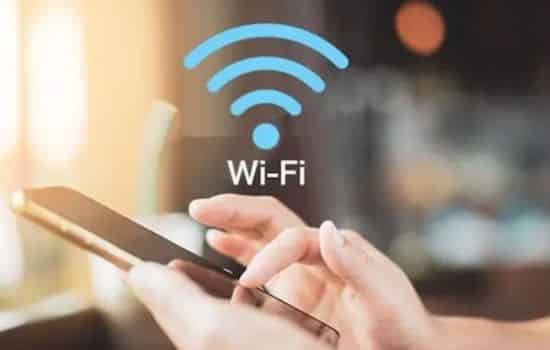Advertisements
The Internet has become an essential resource in the modern world. 5 reasons to have WIFI on your mobile.
From communication to remote work and entertainment, staying connected is part of everyday life for billions of people.
Advertisements
As a result, the use of Wi-Fi networks has grown exponentially, becoming the preferred option for accessing the Internet, both in domestic and public environments.
But why is Wi-Fi so beneficial? In this article, we'll explore the top five reasons to use Wi-Fi networks, highlighting how they can make your life easier and provide a more efficient digital experience.
Advertisements
In addition, we will introduce Wi-Fi Map, an innovative application that helps users find free Wi-Fi connections anywhere in the world.
See also:
- Top 5 Reasons to Learn to Play the Accordion
- Top 5 Reasons to Learn to Crochet
- 5 reasons to have WIFI on your mobile
- Activate 5G on your mobile with these apps
- These apps will help you speak English
Unlimited and Convenient Connectivity
One of the biggest benefits of Wi-Fi networks is seamless, continuous connectivity.
Unlike mobile data usage, which can be limited by restricted packages and high costs, Wi-Fi allows you to stay connected for long periods without worrying about internet franchises.
Why is this important?
• Access anywhere: Today, many cities and establishments offer free Wi-Fi networks, including airports, coffee shops, libraries and even public parks.
This means you can connect to the Internet even when you are away from home or the office.
• Avoid excessive mobile data charges: If you rely solely on your carrier for Internet access, you could end up spending a lot of money on additional packages.
With Wi-Fi, this problem disappears.
• Improve your browsing experience: Many Wi-Fi networks are faster and more stable than cellular connections, allowing you to watch high-resolution videos, make video calls, and download large files without interruptions.
Whether for work, leisure or study, having a Wi-Fi network available makes all the difference in the digital experience.
Connection Speed and Stability
Nothing is more frustrating than a slow connection. Imagine trying to watch a video on YouTube and having it freeze every five seconds.
Wi-Fi networks, especially those connected to a good Internet provider, offer much higher speeds than most mobile data plans.
What makes Wi-Fi faster? • Superior broadband: Home Internet, via Wi-Fi, generally has a higher traffic capacity than mobile networks.
This means you can transfer data faster.
• Less interference in closed spaces: At home or at work, your Wi-Fi network can be optimized to provide the best possible coverage, avoiding connection drops.
• Multi-Device Support: Unlike a mobile data plan, which is typically limited to a single device, a Wi-Fi router allows multiple devices (phones, tablets, laptops, and smart TVs) to be connected simultaneously without significant loss of speed.
With a quality Wi-Fi connection, the digital experience becomes smoother and more efficient.
Greater Battery Savings for Mobile Devices
If you often use the Internet on your cell phone, you may have already noticed that battery consumption is much higher when using mobile data.
This happens because 4G or 5G connections require more effort from the device to find and maintain the signal, especially in areas with irregular coverage.
How does Wi-Fi help save battery? • Less effort to find signal: When you're connected to a Wi-Fi network, your phone doesn't need to constantly search for new signal towers, which reduces power consumption.
• Less heat and wear on the device: Using mobile data for long periods of time can heat up the device, draining the battery faster. Wi-Fi avoids this problem.
• Auto save mode: Many smartphones are programmed to save power when they detect a Wi-Fi connection, reducing the need for constant background app syncs.
If you want to extend your battery life, prioritizing Wi-Fi networks over mobile data is a smart choice.
Enhanced Security (When Used Correctly)
Many people are afraid to use public Wi-Fi networks for security reasons, and this makes sense.
Open connections can be easy targets for hackers, allowing sensitive data to be intercepted.
However, when used correctly, Wi-Fi networks can be more secure than cellular connections.
Tips to keep you safe on Wi-Fi: • Use password protected networks: Whenever possible, only connect to Wi-Fi networks that require authentication.
• Use a VPN (Virtual Private Network): VPN apps encrypt your connection, making it more secure against cyber attacks.
• Avoid entering sensitive information on public networks: Don't log into banks or enter personal information when you're on public Wi-Fi.
Always update your home router: Keeping your router firmware up to date helps protect your network from invasions.
With proper care, Wi-Fi can be a safer and more reliable option for your daily browsing.
Access the Internet in Remote Locations with Apps like Wi-Fi Map
We are not always close to a known Wi-Fi network. When travelling or at times when mobile data fails, finding an available Wi-Fi can be a real challenge.
This is where Wi-Fi Map comes in, an innovative app that makes it easy to find free Wi-Fi networks around the world.
What is Wi-Fi Map?
Wi-Fi Map is an application that works as a collaborative database of Wi-Fi networks.
It gathers information about free hotspots in various cities, allowing users to quickly find connections near them.
Main features of Wi-Fi Map: • Real-time Wi-Fi network map: Just open the app to see a list of available networks around you.
Passwords shared by users: Many password-protected networks have their credentials shared by other users of the application, making access easier.
Offline mode: You can download Wi-Fi maps before traveling to an offline location and check available networks even without Internet.
VPN Supported: Wi-Fi Map offers a built-in VPN option so you can browse safely on public networks.
This app is an amazing solution for those who need constant connectivity and want to avoid excessive mobile data charges.

Conclusion
Wi-Fi has revolutionized the way we access the Internet, offering convenient connectivity, superior speed, battery savings, enhanced security and easy access to networks anywhere in the world.
With the help of apps like Wi-Fi Map, finding free connections has become even easier, ensuring that you stay online even in remote locations.
Whether for work, study or leisure, prioritising Wi-Fi networks can provide a more efficient and cost-effective digital experience.
Now that you know the benefits, make the most of Wi-Fi and explore new connection possibilities!




